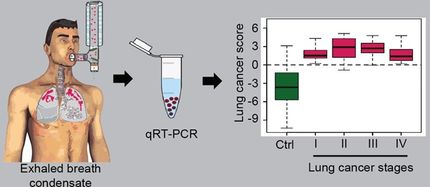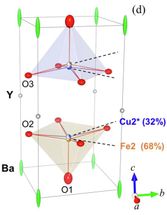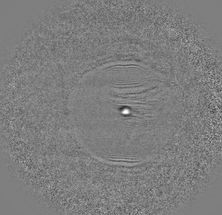Finding biomarkers for early lung cancer diagnosis
lung cancer patients are often diagnosed only when their disease is already at an advanced stage and hard to treat. Researchers at the West Coast metabolomics Center at UC Davis are trying to change that, by identifying biomarkers that could be the basis of early tests for lung cancer.
Lung cancer can be diagnosed early with regular low-dose CT (computed tomography) scans of people at risk. But these tests are very expensive, and also involve exposing patients to X-ray radiation. Instead, Oliver Fiehn, director of the metabolomics center and a professor of molecular and cellular biology at UC Davis, project scientist William Wikoff and colleagues set out to look for biomarkers of developing lung cancer in blood from patients.
Fiehn's lab specializes in "metabolomics," an approach that involves analyzing all the biochemical products of metabolism in cells and tissues at the same time. Like other "-omics" approaches, it's made possible by new technology and computing power.
Applying metabolomics, Wikoff and Fiehn found that one molecule, diacetylspermine, was almost doubled in serum collected from patients up to six months before they were diagnosed with lung cancer, compared to healthy controls.
They then combined diacetylspermine with another previously identified biomarker, a protein called pro-surfactant protein B (pro-SFTPB), and tested for both markers in another set of sera collected from CARET patients months before they developed lung cancer.
"Individually, the markers were about 70 percent predictive but in combination, that rose to 80 percent," Fiehn said. In other words, eight out of ten people with early-stage cancer would be correctly identified by the combined test.
If the double biomarker were in use as a clinical test, those patients could then be referred for a low-dose CT scan to confirm the presence of cancer.
Original publication
William R. Wikoff, Samir Hanash, Brian DeFelice, Suzanne Miyamoto, Matt Barnett, Yang Zhao, Gary Goodman, Ziding Feng, David Gandara, Oliver Fiehn and Ayumu Taguchi; "Diacetylspermine Is a Novel Prediagnostic Serum Biomarker for Non–Small-Cell Lung Cancer and Has Additive Performance With Pro-Surfactant Protein B"; Journal of Clinical Oncology, 2015
Most read news
Original publication
William R. Wikoff, Samir Hanash, Brian DeFelice, Suzanne Miyamoto, Matt Barnett, Yang Zhao, Gary Goodman, Ziding Feng, David Gandara, Oliver Fiehn and Ayumu Taguchi; "Diacetylspermine Is a Novel Prediagnostic Serum Biomarker for Non–Small-Cell Lung Cancer and Has Additive Performance With Pro-Surfactant Protein B"; Journal of Clinical Oncology, 2015
Organizations
Other news from the department science

Get the analytics and lab tech industry in your inbox
By submitting this form you agree that LUMITOS AG will send you the newsletter(s) selected above by email. Your data will not be passed on to third parties. Your data will be stored and processed in accordance with our data protection regulations. LUMITOS may contact you by email for the purpose of advertising or market and opinion surveys. You can revoke your consent at any time without giving reasons to LUMITOS AG, Ernst-Augustin-Str. 2, 12489 Berlin, Germany or by e-mail at revoke@lumitos.com with effect for the future. In addition, each email contains a link to unsubscribe from the corresponding newsletter.





















































